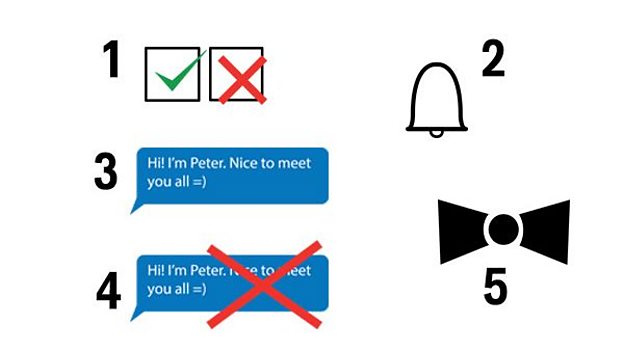Unit 8: Go The Distance: Social learning
Select a unit
- 1 Go The Distance: Choosing distance learning
- 2 Go The Distance: Academic reading
- 3 Go The Distance: Academic talk
- 4 Go The Distance: Academic writing
- 5 Go The Distance: Finding and using source material
- 6 Go The Distance: Going the distance
- 7 Go The Distance: Critical thinking
- 8 Go The Distance: Social learning
- 9 Go The Distance: Projects
- 10 Go The Distance: Succeeding in exams
Session 4
Academic Writing 8 – Discussion forums
Welcome back to Academic Writing – our series with the activities and tips to help you become a top-class writer. This time we're looking at a slightly less formal, but very important aspect of writing in distance learning: the language of online discussion.
Activity 1
How to write in distance learning discussions
Having discussions with your peers is an important part of academic study. We do this both face to face and over the internet on forums. When you write something on a forum, it is called a 'post'. We also use this as a verb, so you 'post' something on a forum. When a discussion starts with the first post, the conversation is referred to as a 'thread'.
It is important to think about the type of language you use on forums. When we talk face to face, we use facial expressions and change our tone of voice to show exactly how we feel. We can't do this when we're communicating online – so what should you do in your distance learning discussions? Scroll down to find out with our academic writing activities!
What's online forum etiquette?
To do
Let’s start with some basic forum etiquette (how to behave). You don’t want to make a bad impression with your first post! We're going to give you five tips for good online behaviour – can you guess what they are? Check what you think below.
Try the activity

1. Check the rules
Some forums have their own rules page. Always read this as it will give some essential information about how to use the forum, and any guidelines for your posts. This could be where to post, what to include in your title, and any information about inappropriate language and topics.
2. Announcements
Your tutors will most likely make announcements. Always read these carefully as they contain a lot of information about your course and assignments. Some of the questions you have may even be answered in these announcements. They’ll also tell you where to post, using language such as:
'Just to say for everyone, if you could address their queries in the dedicated thread only.'
The 'dedicated thread' is a post which stays at the top of the forum, as is only to be used for a specific purpose. So no general chit-chat here, please!
3. Introductions
When you post for the first time, it is a good idea to give a quick introduction. You can say your name, where you're from and what course you’re studying. This is a good way of building rapport with your coursemates.
4. Double posting
When you post something, be patient! People are studying from all over the world and live in different time zones – they may be asleep! So wait for a reply – don't post again and again. This is annoying for everyone and you're less likely to get the help you need.
5. Formal or not?
Always be polite with people. You'll be working with people from a range of backgrounds and cultures, so always be respectful of this. However, being polite isn't always about being formal. Make sure the language you use suits the context of the discussion!
Do you know internet language?
Since the dawn of the internet, people have been finding ways of making communication faster and easier - such as using acronyms, where a word is made from a series of letters, each one representing a word from a phrase. Here’s a very common internet acronym:
lol (or LOL)
Have you seen this before? It means 'Laugh Out Loud'. It is very common in forums, and shows that you think something is funny. If something is REALLY funny, use capital letters: LOL!
To do
What do these acronyms mean? Write down what you think – you can check your answers with our guide to acronyms later on this page.
- AFAIK
- BBL
- CU
- DAE
- IDK
- IMO
- NGL
- OP
- ROFL
- TBH
- TL;DR
- TTYL
Check our acronyms guide
Download our guide to acronyms to check your answers. How many did you get right? You'll also learn about using emoji – the useful little pictures you can find on your smartphones and social media apps.
Next
Time for questions – how do you ask direct and indirect questions appropriately in online discussion forums? Go to the next activity to find out!
Session Vocabulary
Find out more about distance learning – visit our partner,The OU
____________________